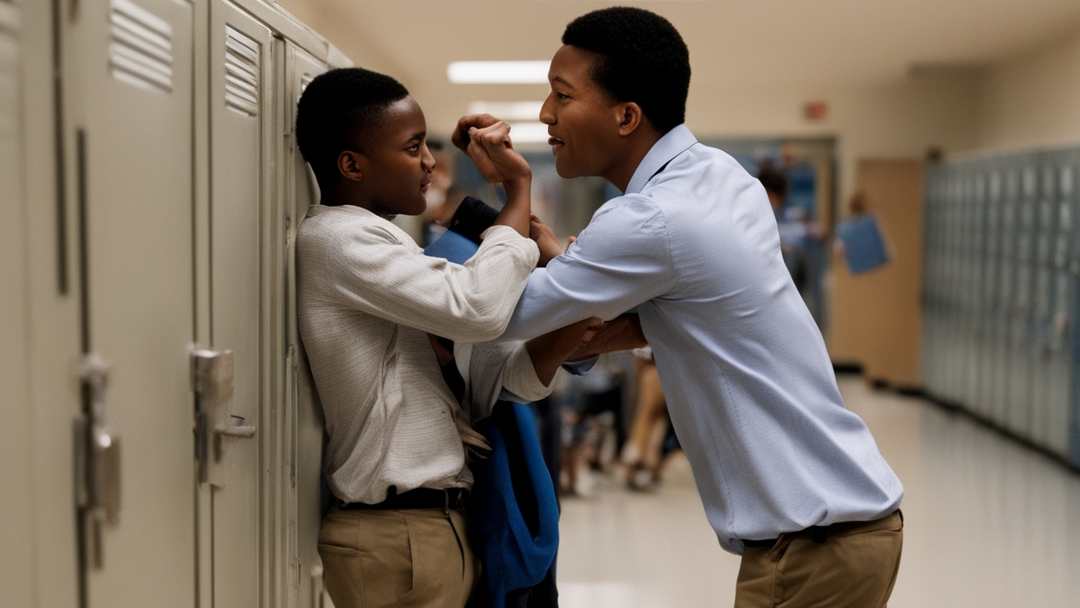This case is about whether the Act’s general prohibition on the sale and possession of certain “assault weapons,” are unconstitutional under the Second Amendment.
An en banc federal appeals court upheld Maryland’s ban on assault-style weapons in a 10-5 decision Tuesday.
The 4th U.S. Circuit Court of Appeals in Richmond, Virginia, ruled that military-style weapons are not shielded by the Second Amendment as they are intended for prolonged combat scenarios and do not align with the requirements for self-defense.
– Define self defense and what is one defending, a home, a family. a city, a nation and against whom, a single person, a mob, an invasion? –
Judge J. Harvie Wilkinson III authored the majority opinion, with the support of eight other justices, while a tenth justice expressed agreement with the outcome.
The 4th Circuit previously upheld the Maryland law in a 2017 decision, but the U.S. Supreme Court rejected part of the appeals court’s approach when it ruled in a different 2022 case, New York State Rifle & Pistol Association Inc. v. Bruen, according to the appeals court.
In the new decision, Wilkinson concluded that the 2013 Maryland law
“fits comfortably within our nation’s tradition of firearms regulation.”
The Fourth Circuit ruled in favor of the state, agreeing that AR-15-style weapons are military-style firearms that are not protected by the Second Amendment
even though the second amendment states
“A well regulated Militia, being necessary to the security of a free State, the
right of the people to keep and bear Arms , shall not be infringed.”
Maryland enacted its assault weapons ban in 2013 after a shooter used a semi-automatic rifle in the 2012 mass killing of 20 children and six adults at Sandy Hook Elementary School in Newtown, Connecticut.
The 2013 law is an example of states regulating “excessively dangerous weapons” when their “incompatibility with a lawful and safe society becomes apparent,” he wrote.
In his dissent, Judge Julius N. Richardson said the Second Amendment “is not a second-class right subject to the whimsical discretion of federal judges. Its mandate is absolute and, applied here, unequivocal.” His dissent was joined by four other judges.
Read more here
What’s going on out there…
- Colorado clerk urges Supreme Court to block trial over voting machine password leak
Former Mesa County clerk-recorder Tina Peters claims she has constitutional immunity from prosecution by “hostile state actors.” - Montana Supreme Court finds parental consent law unconstitutional
Montana minors have a right to make reproductive health care decisions privately, without parental interference, the justices ruled. - No bonus for growing weed
A marijuana farm worker cannot win his breach-of-contract suit over a $100,000 bonus he says he’s owed for achieving a “healthy harvest of 1,400 pounds of dry cannabis crop.” The contract is void and unenforceable because “manufacturing” marijuana is a federal crime. - Matthew Perry’s assistant among 5 people, including 2 doctors, charged in ‘Friends’ star’s death
Legal Counsel and Your Rights
When facing legal challenges, particularly in criminal cases, it is advisable to seek legal counsel immediately.
An experienced attorney can provide guidance on how to navigate interactions with law enforcement while safeguarding your constitutional rights.
Since 1993 our expert legal defense in navigating criminal law matters and protecting your constitutional rights are what we eat for breakfast everyday.
Contact Komorn Law PLLC if you’re ready to fight and win.
Research us and then call us.
More Rights You Should Know

Do Passengers in a Vehicle have 4th Amendment Rights?
Do Passengers have 4th Amendment Rights?Michigan Supreme Court Limits Police Ability to Search Passenger Property in CarsBackground Mead was a passenger in a car and had just met the driver, who offered him a ride. When the police stopped the vehicle and ordered both...

Do Students Have 4th Amendment Rights in Schools
Students and 4th Amendment RightsStudents are entitled to a right to be safe from unreasonable searches and seizures even within school premises, as ruled by the Supreme Court of the United States. However, these rights are somewhat limited for students, allowing...
Other Articles
Former 3M scientist who made unsettling PFAS discovery says bosses deceived her
Gee - What a surprise... When a former 3M scientist discovered the company’s chemicals were in human blood in the general population, she says her bosses misled her to believe it was harmless.3M accused of deceiving its own scientist about PFAS in human blood Hansen...
Drones – What Drones?
Jersey cops launched into the night sky with catapults to throw dreamcatchers at the unknown drones to entangle their props and bring em down! Just kidding - I think.Darrr.. What drones? Those drones pose no threat there are no drones. That's just a balloon,...
Cash For Kids Judge Pardoned (The Kickback Club)
Biden’s commutation for Judge in ‘kids for cash’ scandal should anger the entire universe.Biden’s commutation in ‘kids for cash’ scandal. BY MICHAEL RUBINKAMUpdated 5:32 PM EST, December 13, 2024A judge implicated in one of the most notorious judicial scandals in U.S....
Law and Crime News NOT in the Headlines (Update 12-10-24)
Just When You Thought Your Life Was Bad...Law and Crime NOT in the Headline NewsDive Into The Rabbit Hole Don't Forget Why You Were Here At Komorn Law.Call Us When You Come Out. (248) 357-2550‘Running a brothel’: Judge killed in chambers by sheriff was part of...
How Much Does It Cost To Hire a Criminal Defense Attorney?
Don't do the crime - if you can't pay the price.Average Flat Fees. Some criminal defense attorneys charge a flat fee for certain types of cases, instead of billing by the hour. This may or may not include filing fees, motions, fees, etc. Flat fees include: DUI/DWI –...
Detroit Renaissance Center Could See Two Towers Knocked Down
Two towers of Detroit’s Renaissance Center would be razed and the complex converted to a mix of housing and offices under an ambitious $1.6 billion plan.Last spring, GM chose to step away from the iconic RenCen in pursuit of a more "modern" space that is currently...
What do you do when you are pulled over for suspected DUI?
If you are pulled over for suspected drunk driving you are probably going to be arrested. The less you say - the better off you are in the long run. If you find yourself being pulled over for suspected DUI, ensure you pull over safely to the roadside, maintain a...
Michigan Problem-Solving Courts Granted Nearly $19 Million
"Data show these programs strengthen communities by reducing crime, boosting employment"LANSING, MI, October 24, 2024 (Substance Abuse Prevention Month) – The Michigan Supreme Court announces that the State Court Administrative Office (SCAO) has awarded $18,823,910...




















